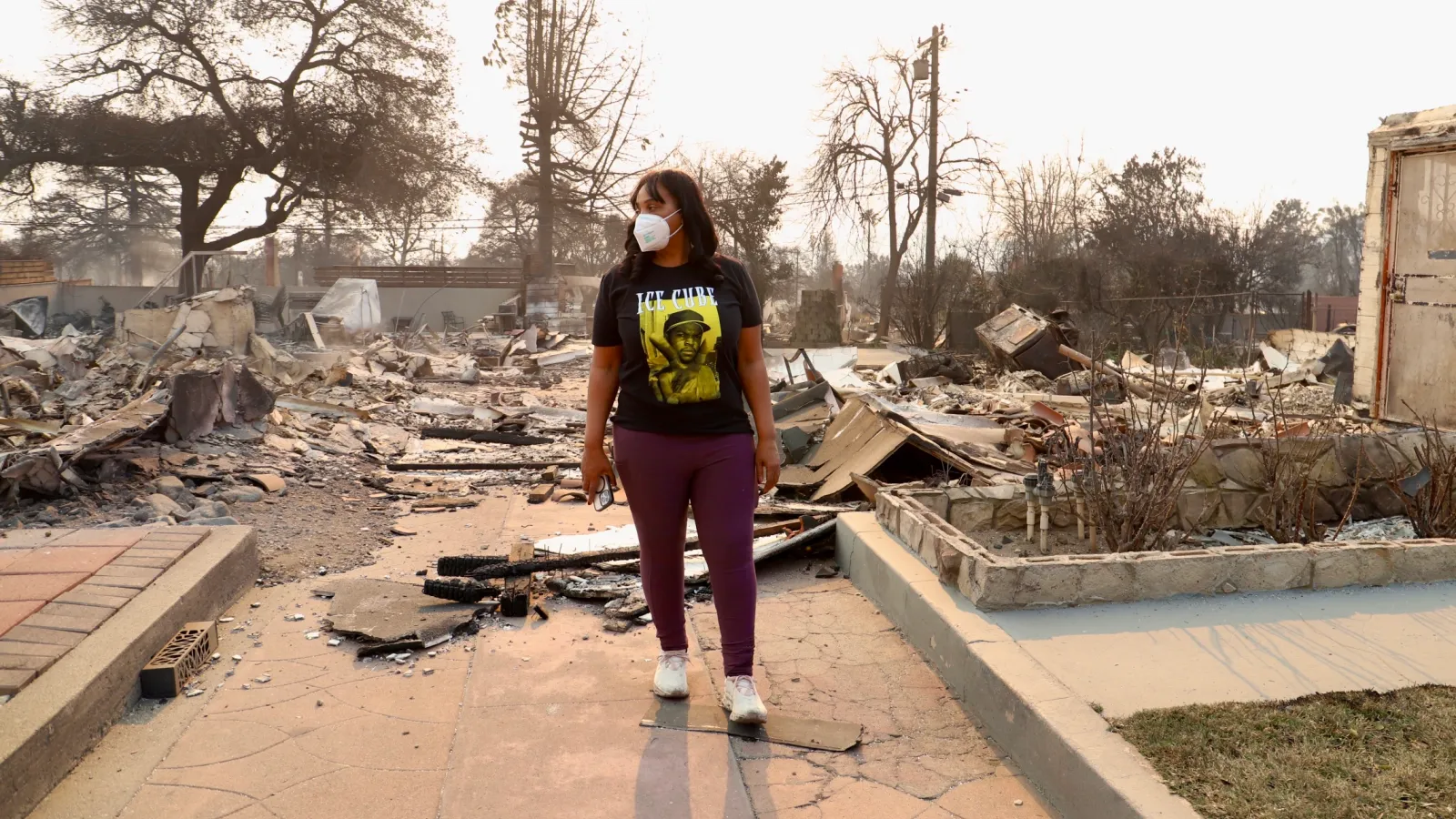Pasadena and Altadena, two neighboring communities in California, have long been home to a vibrant Black population, with many homes passed down through generations. These areas were once some of the few places where Black families could afford to buy property, especially in the years following the end of segregation.
But the recent Eaton fire has changed everything for families like Sheila Foster’s. After losing her home of more than 20 years in Altadena, Foster’s plans to pass it down to her children have been dashed. “It hurts to wake up and not even have a toothbrush,” said the 55-year-old. “This house was going to go to my kids. I don’t have $500,000 sitting in the bank.”
Altadena, a small unincorporated community in the San Gabriel Valley, is surrounded by beautiful natural landmarks like Arroyo Seco and the Sierra Madre mountains. While the median home price in Los Angeles County was $900,000 in December 2024, Foster’s story reflects the financial pressures many in her community face.
Foster, who grew up in Altadena and Pasadena, lost two homes to the fire—one she rented out and the other she shared with her family. Though she, her tenant, and her family are safe after evacuating, the fire has left its mark. The blaze, which has burned nearly 14,000 acres and destroyed more than 4,000 structures, has hit the Black community hard, with over 200 GoFundMe pages set up to help those affected.
Foster fears that the fire will disproportionately impact Black residents, many of whom are elderly or struggling to hold on to property that’s been passed down for generations. “This will displace a lot of Black people,” she said. “Some were barely holding on before the fire.”
The history of Black communities in Altadena and Pasadena dates back to the Civil Rights Movement when many families moved to the area during the 1960s and 1970s. As white families moved out due to school desegregation and other factors, Black residents moved in, eventually making up 43% of Altadena’s population by 1980.
For Black families, homeownership has long been a key to building generational wealth, but systemic barriers like redlining and discrimination have made it harder for them to achieve. Even after the Fair Housing Act of 1968, Black homeownership continued to lag behind due to predatory lending and other challenges. In California, Black homeownership is still just 36.6%, significantly lower than the state’s White homeownership rate.
For Foster, the future is uncertain. “I don’t know what my next steps are other than prayer,” she said. “I do want to rebuild and come back because I’ve been in Pasadena and Altadena all my life.”




